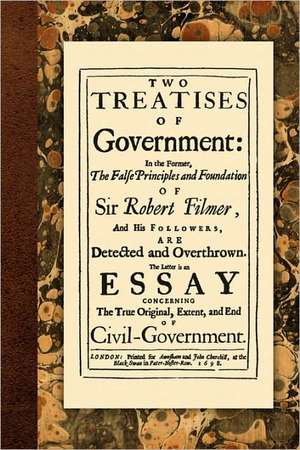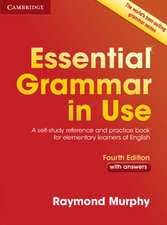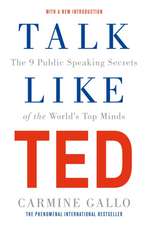Two Treatises of Government
Autor John Lockeen Limba Engleză Paperback – 14 feb 2010
| Toate formatele și edițiile | Preț | Express |
|---|---|---|
| Paperback (11) | 48.42 lei 3-5 săpt. | |
| CreateSpace Independent Publishing Platform – | 48.42 lei 3-5 săpt. | |
| Orion Publishing Group – 15 dec 1993 | 57.34 lei 3-5 săpt. | |
| CreateSpace Independent Publishing Platform – | 83.01 lei 3-5 săpt. | |
| Hackett Publishing Company – mar 2016 | 117.16 lei 3-5 săpt. | +26.72 lei 4-10 zile |
| Hansebooks – 31 mar 2021 | 304.14 lei 3-5 săpt. | |
| Merchant Books – apr 2011 | 77.64 lei 6-8 săpt. | |
| Binker North – 4 iun 2023 | 89.44 lei 6-8 săpt. | |
| Book Jungle – 3 noi 2009 | 115.12 lei 6-8 săpt. | |
| Book Jungle – feb 2009 | 126.93 lei 6-8 săpt. | |
| Lawbook Exchange, Ltd. – 14 feb 2010 | 132.44 lei 6-8 săpt. | |
| Alpha Editions – 10 iul 2020 | 138.40 lei 6-8 săpt. | |
| Hardback (2) | 130.76 lei 6-8 săpt. | |
| Binker North – 30 sep 1789 | 130.76 lei 6-8 săpt. | |
| Lawbook Exchange, Ltd. – 14 feb 2010 | 304.83 lei 6-8 săpt. |
Preț: 132.44 lei
Nou
Puncte Express: 199
Preț estimativ în valută:
25.35€ • 26.41$ • 21.07£
25.35€ • 26.41$ • 21.07£
Carte tipărită la comandă
Livrare economică 10-24 februarie 25
Preluare comenzi: 021 569.72.76
Specificații
ISBN-13: 9781616190347
ISBN-10: 1616190345
Pagini: 368
Dimensiuni: 152 x 229 x 21 mm
Greutate: 0.54 kg
Editura: Lawbook Exchange, Ltd.
ISBN-10: 1616190345
Pagini: 368
Dimensiuni: 152 x 229 x 21 mm
Greutate: 0.54 kg
Editura: Lawbook Exchange, Ltd.
Notă biografică
John Locke (29 August 1632 - 28 October 1704) was an English philosopher and physician, widely regarded as one of the most influential of Enlightenment thinkers and commonly known as the "father of liberalism". Considered one of the first of the British empiricists, following the tradition of Francis Bacon, Locke is equally important to social contract theory. His work greatly affected the development of epistemology and political philosophy. His writings influenced Voltaire and Jean-Jacques Rousseau, and many Scottish Enlightenment thinkers, as well as the American Revolutionaries. His contributions to classical republicanism and liberal theory are reflected in the United States Declaration of Independence. Internationally, Locke's political-legal principles continue to have a profound influence on the theory and practice of limited representative government and the protection of basic rights and freedoms under the rule of law.Locke's theory of mind is often cited as the origin of modern conceptions of identity and the self, figuring prominently in the work of later philosophers such as Jean-Jacques Rousseau, David Hume, and Immanuel Kant. Locke was the first to define the self through a continuity of consciousness.He postulated that, at birth, the mind was a blank slate, or tabula rasa. Contrary to Cartesian philosophy based on pre-existing concepts, he maintained that we are born without innate ideas, and that knowledge is instead determined only by experience derived from sense perception, a concept now known as empiricism.
Recenzii
"The notes are excellent. There are very few people likely to pick up Locke who would not find them of use. Would that every edition of a classic work had an index of this quality, allowing the reader to go back and find a previous discussion touching on the same issue. The Introduction is clearly written, intelligent, and the argument is sound. I know of no better short introduction to this work." Paul A. Rahe, Charles O. Lee and Louise K. Lee Chair in the Western Heritage, Professor of History, Hillsdale College
















